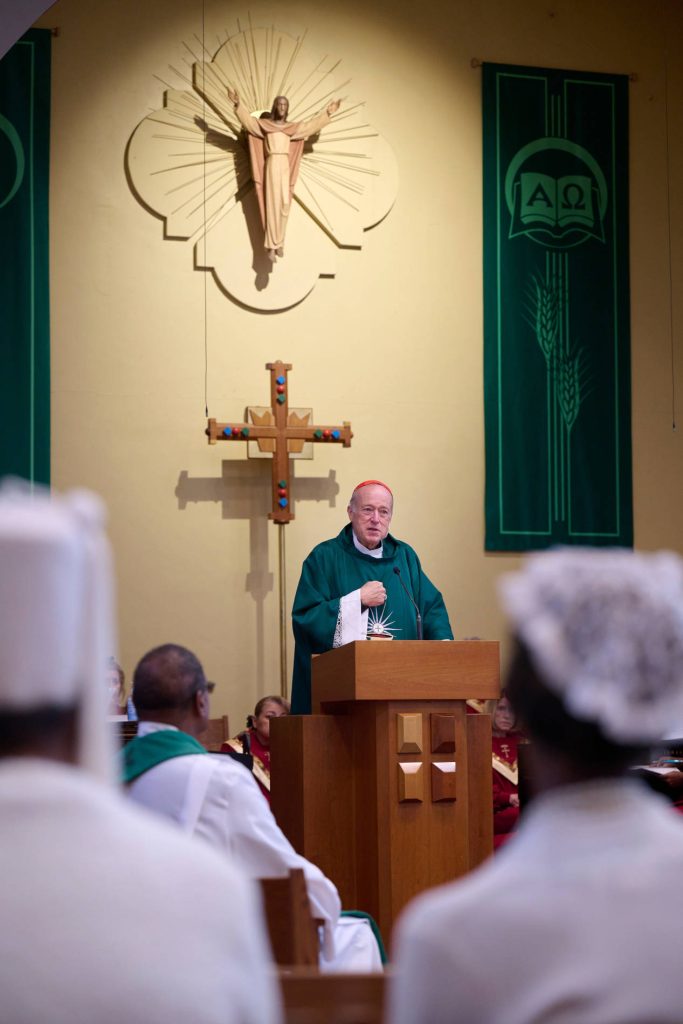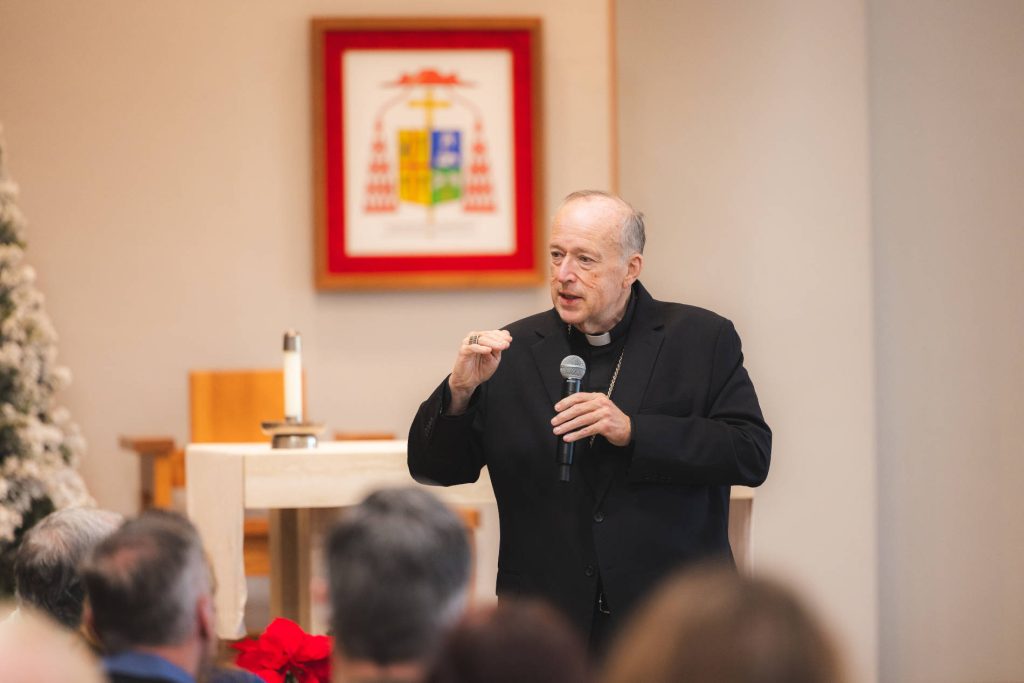SAN DIEGO — “How are we, as members of the Catholic community in the United States, called to confront this challenging electoral moment in our country’s history and transform it into an opportunity to bring the vision of the Gospel of Jesus Christ and the social teaching of the Church into the core of our national life?”
Cardinal Robert W. McElroy asked that question a few weeks before the 2020 presidential election, in an essay titled “Conscience, Candidates and Discipleship in Voting.”
In the essay, he wrote that the faith-filled voter is asked to make the complex judgment: Which candidate will be likely to best advance the common good through his office in the particular political context he or she will face? Such a decision embraces the planes of principle and character, competence and leadership. And, for the faithful voter, the very complexity of this moral judgment demands a recourse to the voice of God that lies deep within each of us — our conscience, he said.
Four years later, citizens are facing another contentious presidential election, which offers starkly competing visions for the future of the nation. Cardinal McElroy once more urges faithful Catholic voters to promote unity, while engaging in deep spiritual reflection on the issues and candidates themselves.
“We are called in our lives as citizens to be missionaries of dialogue and civility in a political culture that values neither. And that requires deep spiritual reflection, courage and judgment. It demands a Christ-like dedication to seeking the truth no matter where it may lie and defining our politics and voting in the light of the Gospel,” he wrote.
He said that the challenge to faith-filled voters was to weigh the salient issues of the day and evaluate them as Christ would in advancing the common good. He singled out three of them: the protection of unborn children; the reversal of climate change that threatens all creation; and the struggle against the culture of exclusion, which is built upon racism, anti-immigrant sentiment, religious prejudice and social division.
However, elections ultimately involve choosing a candidate for public office, not a stance, nor a specific teaching of the Church, he wrote.
The cardinal proposed three criteria that voters could use to help them to discern what candidate to choose.
Leadership is one of them, he noted.
“Good leadership comes in many forms … It can be inspiring and motivational. It can be healing and unifying. What form of leadership does the United States need at this moment in its history?”
Competence is also a central metric for voters to consider, he wrote.
“Faith-filled voters must assess the intelligence, human relations skills, mastery of policy and intuitive insights that each candidate brings to bear, for voting discipleship seeks results, not merely aspirations.”
Finally, a candidate’s character also should be considered, citing qualities such as truthfulness, collegiality and political courage.
“How do faith-filled voters integrate the tenets of Catholic social teaching, recognize the role that leadership, character and capacity play in the real world of governing, and preserve a stance of building unity within society?” Cardinal McElroy asked.
They can use the Catholic virtue of prudence to discern their electoral choice, he wrote.
Prudence “brings into balance all of the virtues of the Christian moral life to provide a singularly incisive moral perspective for the disciple confronting ethically complex problems.”
He added that, “There cannot be faith-filled Catholic voting without the virtue of prudence, exercised within the sanctity of a well-formed conscience.”
In 2020, Cardinal McElroy offered a prayer on the eve of that year’s consequential election, one relevant today.
“In his address to Congress in 2015, Pope Francis said a nation is great when it defends liberty as Abraham Lincoln did, when it seeks equality as Martin Luther King did, and when it strives for justice for the oppressed as Dorothy Day did. Let us pray that our nation embraces the pathway of such greatness in this election year and that faith-filled, prudent disciples are leading the way.”
Voter Information
Online Election Information
State: sos.ca.gov
San Diego County: sdvote.com
Imperial County: elections.imperialcounty.org
Register to vote online: registertovote.ca.gov
Online Catholic Resources
Campaign to promote civility: CivilizeIt.org
Voter Registration Status
Check your registration status at sdvote.com (San Diego County) and elections.imperialcounty.org (Imperial County)
Key Election Dates
Oct. 5: Ballots begin to be mailed to registered voters in San Diego County
Oct. 7: Ballots begin to be mailed to registered voters in Imperial County
Oct. 7-Nov. 4: In-person registration during early voting at county elections office
Oct. 21: By 11:59 p.m., deadline to register online at registertovote.ca.gov
Oct. 21: Registration by mail must be postmarked by this date.
Nov. 5: In-person registration and voting at voting locations on Election Day









